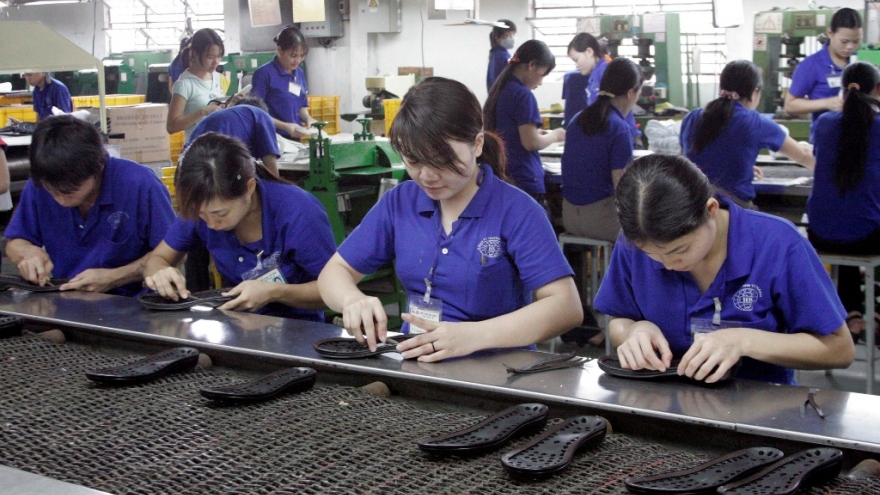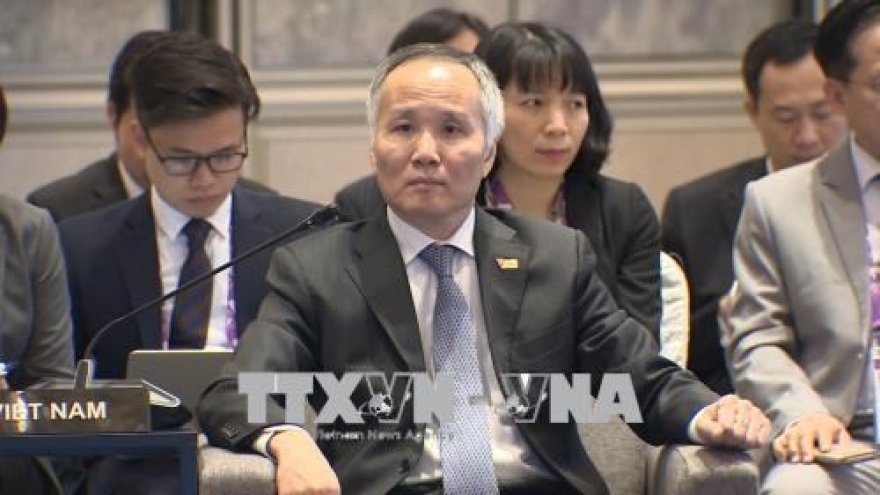Vietnamese labour force need to up skill for ASEAN integration
VOV.VN - The ASEAN Economic Community (AEC) is expected to lead to the creation of a huge labour market, offering a wealth of opportunities for skilled workers who are free to work in different ASEAN countries.
 |
The establishment of the AEC in late 2015 allows the free movement of skilled workers throughout the regional bloc, providing favourable conditions for ASEAN experts and skilled workers. ASEAN has eight Mutual Recognition Agreements (MRAs) on occupations to facilitate labour mobility in the region across the eight fields of engineering, nursing, architecture, surveying, medicine, dentistry, accountancy, and tourism.
Skill and technique barriers
Theoretically, workers in the eight aforementioned occupations are permitted to move freely among countries in the AEC, however, such movement has been quite sluggish in recent times.
The occupations, all of which are highly remunerated, make up just 1% of the total labour force in ASEAN. Of those who move between countries, there is a priority for labourers who have needed skills, specific expertise, and those with high qualifications.
Just 196 Vietnamese engineers and 10 architects have secured recognition as ASEAN engineers and architects, while Vietnam has no recognised workers in any of the other occupational fields.
Simon Matthews, CEO of Manpower Group in Thailand, Vietnam, and the Middle East, says according to the Asian Development Bank (ADB) and International Labour Organization (ILO), joining the AEC may help to generate 14 million jobs for Vietnam and ASEAN by 2015, but for the time being no drastic change has been made in labour mobility between Vietnam and other regional countries.
Ha Thi Minh Duc, deputy director of the International Cooperation Department under the Ministry of Labour, Invalids and Social Affairs (MoLISA), put the reason for the dearth of Vietnamese professionals being recognized as qualified ASEAN workers down to the fact that while the AEC allows the free movement of skilled labourers, each occupation has its own conditions which requires countries to agree mutual recognition of occupational skill standards.
Meanwhile, there is a big gap in qualifications among ASEAN countries, not to mention limitations on inner bloc labour mobility, as each country applies certain safeguard measures, such as work permit regulations. In effect this means that workers have to be able to overcome the technical barriers present in ASEAN while also being faced with additional barriers in each individual country. Further complicating matters is the fact that any prospective worker is dependent on the current demands of the labour market in their desired country of work.
Labour quality and productivity
For Vietnam, in addition to the technical barriers, the international labour market views the quality and stature of Vietnamese workers as insufficient in comparison to their peers.
Mac Van Tien from the Southeast Asian Finance, Investment, and Cooperation Trade Research Institute (SEAFIT) says that the skills of Vietnamese labourers are seen as being between average to low compared to the requirements of domestic and regional businesses. There is also a perceived limitation in the required soft skills such as teamwork, situational competence, and working in a multicultural environment.
Mr Tien cites the results of research stating that the quality of the Vietnamese workforce reaches 3.79 points, ranking 11 out of 12 countries surveyed in Asia. The country’s labour productivity is one- fifteenth of Singapore’s, one-third of Malaysia’s, and two-fifths of Thailand’s and the gap is getting wider. Its Talent Competitiveness Index is low, ranking fifth in the region, after Singapore, Malaysia, Thailand, and the Philippines, and 82nd out of the 109 countries surveyed.
Vietnamese workers suffer from a language barrier when compared with other regional countries such as Indonesia and Malaysia, which share a common language, while Laos, Thailand, and Myanmar share many linguistic similarities and so are nearly mutually intelligible, he notes.
Doan Mau Diep, deputy Minister of MoLISA, says that many international investors have come to the conclusion that the requisite skills knowledge, which should have been developed in educational units, is not up to international standards. In addition, the soft skills and industrial manners of Vietnamese workers are relatively poor.
To take full advantage of free movement throughout ASEAN, the onus is on Vietnamese workers to cultivate their occupational and soft skills by focusing on improving in areas such as foreign languages and technological application capacity. Besides more basic knowledge, labourers should seek to advance their skills and qualifications related to their occupation and equip themselves with new skills to meet the requirements of domestic and foreign businesses.
For the benefit of the relevant agencies, vocational training and retraining must be both dynamic and in keeping with regional standards, while management agencies need to coordinate with businesses to ensure training programs are in accordance with social demands. Additionally, there should be a closer connectivity with businesses who can provide students with apprenticeship, then helping them to seek their suitable jobs in future, Diep emphasizes.


